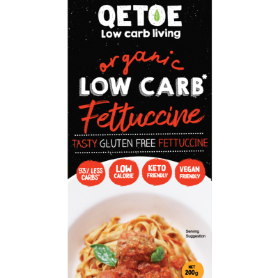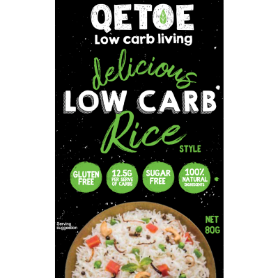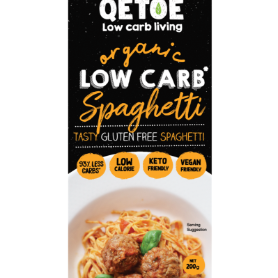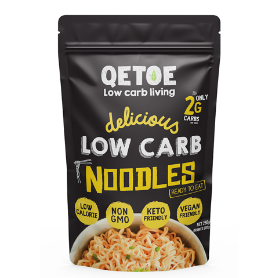According to the Australian Institute of Health and Welfare, about one-third of Australian adults have high blood pressure (1). High blood pressure is a risk factor for stroke and heart disease (2, 3).
The ketogenic diet is known to facilitate weight loss, which, in turn, can help to lower blood pressure. Does that mean that the ketogenic diet also lowers blood pressure?
What Is High Blood Pressure?
Your heart pumps blood through your blood vessels, the blood presses against the vessel walls, and this creates pressure.
Blood pressure is defined by two numbers, systolic and diastolic blood pressure.
The first number refers to systolic blood pressure, which is measured when the heart contracts. This is the maximum pressure that is exerted to the blood vessels during a heartbeat.
The diastolic pressure is measured between heartbeats. As less force is exerted on the vessels, this value is always lower than the systolic blood pressure. Blood pressure is measured in millimeters of mercury, or short mm Hg (4).
The optimal blood pressure is below 120/80 mm Hg.
Repeated measures of 140/90 mm Hg is defined as high blood pressure. Systolic values between 120 and 139 mm Hg and diastolic values between 80 and 89 mm Hg are referred to as prehypertension (5).
Why Is High Blood Pressure Dangerous?
High blood pressure exerts shear stress to the blood vessels, which can cause damage. Cholesterol from the blood easily attaches to damaged vessel walls. Over time, this can lead to the formation of cholesterol plaques, which narrow the blood vessels and interferes with blood flow (6).
When cholesterol plaques rupture, blood clots form. These clots can block blood flow. When blood is blocked to the heart, a heart attack can occur, and when blood flow is blocked to the brain, a stroke can occur. Similarly, high blood pressure can damage arteries in the kidneys, leading to kidney failure.
What Causes High Blood Pressure?
High blood pressure is strongly associated with excess weight. However, the real culprit is not the weight itself but elevated insulin levels that can promote weight gain.
Insulin is known as a blood sugar-lowering hormone that is released whenever you eat something. Sugar and other carbohydrates have the highest impact on insulin, but also protein leads to insulin release.
The body regulates blood pressure through the interplay of two electrolytes, namely sodium (part of table salt) and potassium. An excess of sodium increases blood volume and thereby increases blood pressure (7).
Insulin increases the reabsorption of sodium by the kidneys (8). Multiple high-carb meals per day that keep insulin elevated for most of the time. Chronically elevated insulin levels also make cells resistant to insulin (they stop listening to insulin), which requires more insulin to control blood sugar (9). So high insulin leads to even more insulin, which can cause high blood pressure over time.
Also, fructose, otherwise known as fruit sugar, promotes sodium retention by the kidneys, thereby raising blood pressure (10).
How to Lower Blood Pressure
There are two main ways to decrease blood pressure: medication and lifestyle changes. Medications do not fix the cause of the blood pressure. People on blood pressure medications may take them for the rest of their life. The dosage has to be increased over time, and medications cause side effects.
A more sustainable way to lower blood pressure is through weight loss (11). Weight loss usually goes along with lower insulin levels – it hence addresses the cause of the problem.
A ketogenic diet does not only facilitate weight loss, but it also has a more pronounced effect on insulin levels than other diets because it is low in carbohydrates. Studies consistently show that a low-carb ketogenic diet is very efficient in lowering blood pressure (12).
Keto and High Blood Pressure: Important Considerations
The ketogenic diet is very powerful in lowering blood pressure. That said, it’s important to take the right precautions when you have high blood pressure, and you’re considering starting a ketogenic diet.
Adjust Medications
Because the ketogenic diet lowers blood pressure, the dosage of the medications needs to be adjusted. If the dosage stays the same, the blood pressure likely gets too low over time, which can be dangerous. For advice on how to adapt the medications, please consult your GP.
Watch Your Salt Intake
It is usually advised to increase salt intake on a keto diet because carbohydrate restriction promotes salt loss. However, when you struggle to get your blood pressure down on a ketogenic diet, may you eat too much salt.
At the same time, make sure that you get enough potassium from your diet. Being sodium’s antagonist, potassium helps to bring blood pressure down (13).
The Bottom Line
The ketogenic diet is a dietary intervention that helps regulate blood pressure, which is a major contributor to heart disease. The ketogenic diet is also known to improve blood sugar, blood lipids, and reduce weight – all of which are also linked to a lower risk of heart disease.











